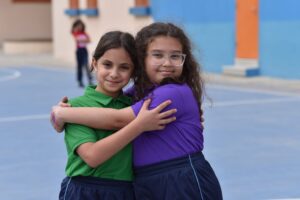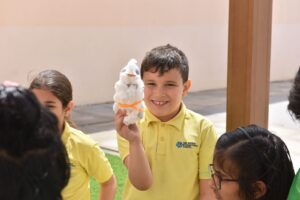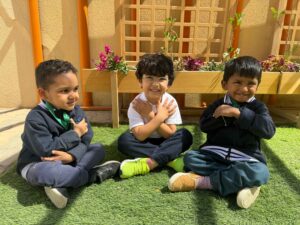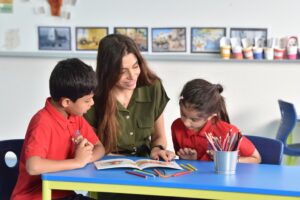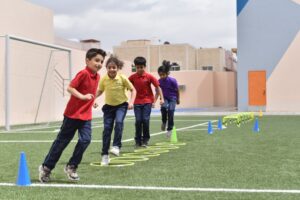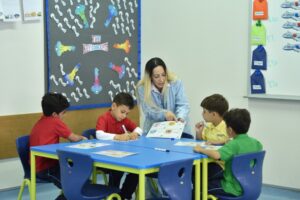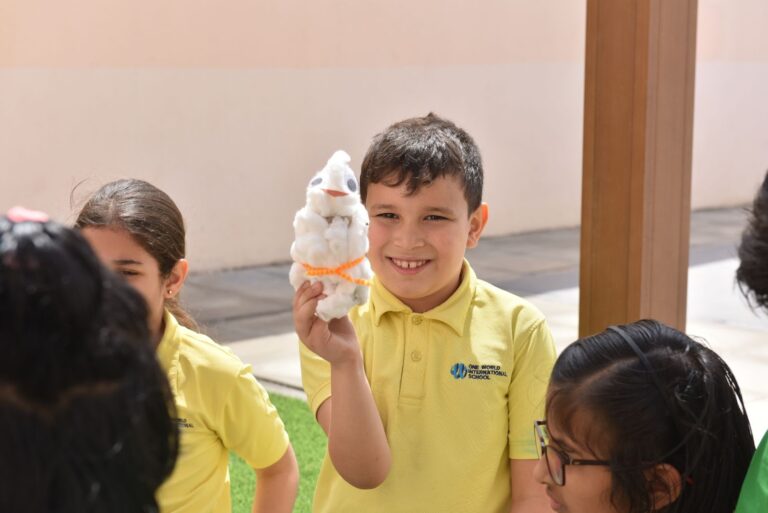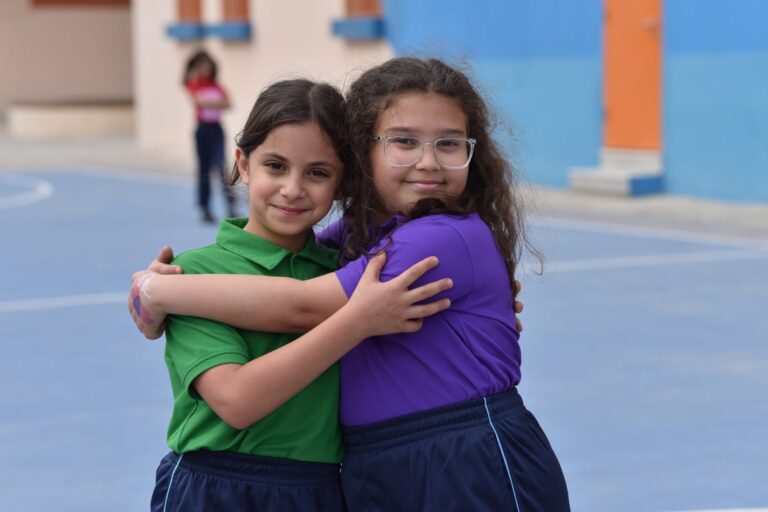Learning is fun when it is interactive, and what is more interactive than play-based activities that young children consider fun! At this age, young minds are developing skills to interact and explore the world around them. Parents and educators can structure play-based activities as learnings for the IB curriculum or the Montessori approach.
Play-based learning is a powerful tool in early childhood and kindergarten education for promoting learning and development in children between three and six years of age.
What is Play-based Learning?
A play-based learning approach acknowledges that children are naturally curious. They learn best through exploration and play. The freedom to choose activities to indulge their interests and passions helps build important developmental skills. Dr Joe Frost, the contemporary father of play advocacy, believes children need a safe setting that makes them resilient and strong.
“Play is the chief vehicle for the development of imagination and intelligence, language, social skills, and perceptual-motor abilities in infants and young children.” Frost (1992, p. 42)
Let’s understand play-based learning in early childhood education with an example:
Imagine a 3-year-old with blocks of various sizes, colors, and shapes. As the child stacks one block over another, they are having the time of their lives – stacking the blocks, watching them fall, picking up, and trying to create a stable stack. A wide smile of satisfaction when the stack stays erect is the reward for the children and their teachers!
The young students learn the concept of large and small objects through this activity. They learn how larger objects can support smaller ones. A trained and experienced teacher uses play-time with blocks to help the child identify colors and shapes.
This is one example of play-based learning, a popular early childhood and kindergarten education approach adopted at OWIS Riyadh. We leave the toys around for the young to let them learn independently. Our teachers guide the children towards games and toys to help them learn as per structured school activities.
We provide the materials and resources to support their learning. Teachers observe and document the play experiences. The information gathered can help plan for a child’s development of gross motor skills, fine motor skills, speech and language, cognitive and intellectual skills, and social and emotional skills.
Elements of play-based learning
According to renowned Swiss psychologist Jean Piaget, “Play is the work of the child.”
Piaget’s theory on cognitive development proposes the role of educators as partners in learning instead of pushing learning onto children. The play-based learning elements are part of OWIS Riyadh Montessori and IB curriculum, and these are discussed below.
Welcoming and visually interesting learning space – These spaces feature distinctive stations for reading, writing, toys, dramatic play, water-based activities, and arts and crafts. The play areas feature materials and activities to engage children with new concepts and past learnings. They promote sensory learning using the five senses and hand-on-activities to stimulate the senses.
Promoting the right to autonomy and choice – Courage and confidence are instilled when young children are given the right to choose activities. Teachers do not challenge their choices allowing for unstructured play. As children choose activities based on their interests, they will also understand the consequence of each choice and action. It leads to a sense of ownership while fostering independence and decision-making skills.
Exploring and experimenting with fun-filled play – It involves open-ended activities and play allowing children to explore their interests, passions, and curiosities. As they explore, their curious minds begin experimenting– allowing them to hypothecate, make predictions, and most importantly, establish cause and effect. They are developing scientific inquiry skills while thoroughly enjoying themselves.
Learning through repetition and reinforcement – Children are bound to return to challenging activities, making them more process-oriented. They can play the same game or read the same book repeatedly until they have mastered it – once mastered, they move on to the next challenge. Revisiting concepts and skills promotes retention by strengthening neural connections through playful and meaningful activities.
Why is play-based learning important?
The first reason to choose play-based learning is how fun it is for young children. They have the freedom to move, choose and indulge in their interests without putting in any conscious effort to learn. While it is fun for the young, it cannot be the only reason for choosing this teaching methodology. Parents and teachers should know why play-based learning in early childhood is important.
Children are developing social and emotional skills through this interactive methodology. They choose to play by themselves or interact with other children in the classroom. The freedom to interact at will, express emotions and have conversations with classmates is an incredible experience for young minds. Most importantly, they are developing the most important life skill – dealing with conflict in a safe and supportive environment.
Play-based learning in early childhood fosters creativity and imagination. Let us go back to the example of blocks. A child is using their imagination and creativity to horizontally stack, vertically create shapes, or even scatter the blocks to see the pattern of scatter. Each activity sparks new ideas and trains of thought. Once they master the activity or are tired, they begin to explore another activity or section in the classroom.
Also Read: Importance of Teaching Moral Values
Learning through play helps with cognitive development, the ability to think and reason. Moving back to the example of the blocks, as the blocks fall from an uneven stack, the children are challenged to solve this mammoth mystery. Experimentation will help them realize the bigger blocks go at the bottom of the stack. They learn that supporting a curved block on a flat block is easier than the other way around. Each play-based activity is an opportunity to develop critical thinking and problem-solving skills.
Play-based learning in early childhood education promotes physical development. Young children are not afraid to use their limbs and sensory organs to experiment with the materials around them. They learn to move, lift, throw, and balance while building their coordination and gross motor skills. This teaching methodology also improves fine motor skills while encouraging social and cooperative play.
To conclude, play-based learning is a valuable approach to early childhood education. We introduce the elements of play-based learning – fun, interactive, and hands-on – to our Montessori and IB curriculum activities at OWIS Riyadh. As these promote creativity, socialization, and problem-solving, the children develop a sense of autonomy, confidence, and decision-making skills. With the help of their teachers, they are building a strong foundation for future academic success.
OWIS Riyadh Communications Team
-
OWIS Riyadh Communications Team#molongui-disabled-link
-
OWIS Riyadh Communications Team#molongui-disabled-link
-
OWIS Riyadh Communications Team#molongui-disabled-link
-
OWIS Riyadh Communications Team#molongui-disabled-link


